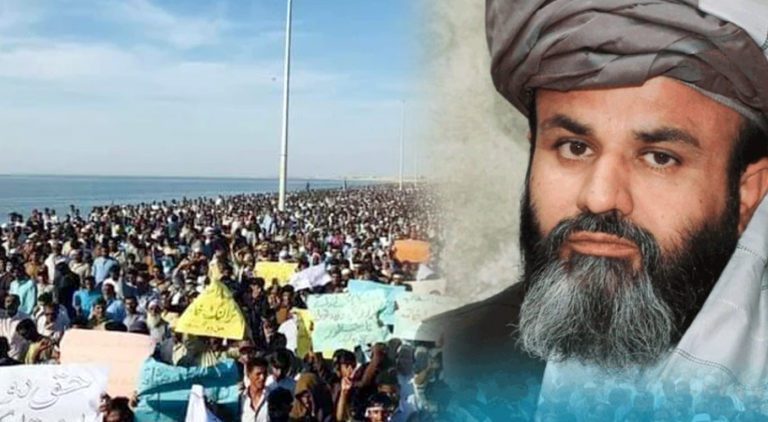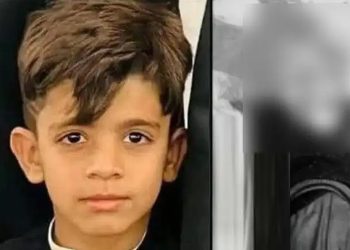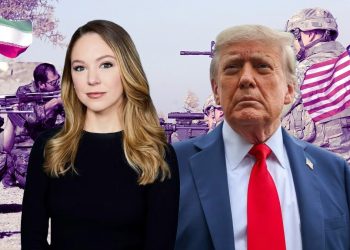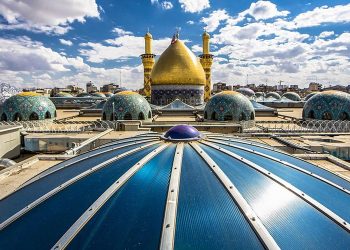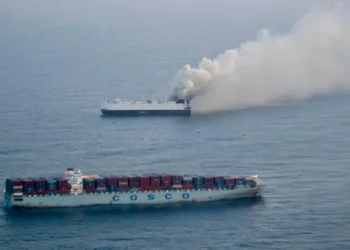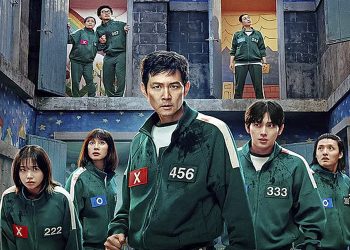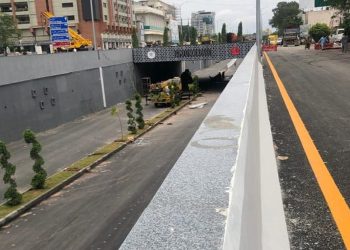The Gwadar protest is an important and unique event in the political history of Balochistan. Game changer in many ways. Jamaat-i-Islami is considered a weak and insignificant party in the province. Maulana Fazlur Rehman’s Jamiat Ulema-e-Islam has always had power pockets in the Pashtun belt of the province. JUI-F has been wining the seats from important districts like Zhob, Pishin, Loralai, Qila Saifullah. On the contrary, the influence of Jamaat-i-Islami and its student organization, Islami Jamiat-i-Tulba has never been established in Balochistan.
In the educational institutions of Balochistan, with the dawn of leftist politics, the Baloch nation has always been dominated by nationalist ideas. The various factions of the Balochistan Student Federation (BSO) have a profound influence on the educational institutions of the province and enjoy a monopoly. The Jamiat-i-Islami students, who once held a strong position in Punjab, KP and Karachi, could not infiltrate the educational institutions of Balochistan for various reasons.
Now the main provincial leader of the same Jamaat-i-Islami has shaken the provincial politics by staging a long sit-in for the 31 days in Gwadar and holding extraordinary large gatherings. Maulana Hidayat-ur-Rehman, who gained national fame for his sit-ins and protests in Gwadar, has been the provincial secretary-general of Jamaat-i-Islami and a former leader of the IJT wing.
Maulana Hidayat-ur-Rehman’s success is being regarded by both the right and left circles with enthusiasm, interest and to some extent skepticism and speculation. JUI-F is thinking that JI might get a breakthrough in the politics of the province and power of being the only religious political force of the province should not get out of their hands.
Nationalist parties are seeing Maulana Hidayat-ur-Rehman’s affiliation with Jamaat-i-Islami with suspicion. They also fear that the ruling forces may be secretly backing Maulana. The Right to Give movement was so popular that no political party or leader in the province was in a position to criticize it. Everyone gladly supported the movement with open heart.
There are three or four major reasons for Maulana Hidayat-ur-Rehman’s success. He belongs to a common family in the area, his father and grandfather were also fishermen. He belongs to Sarband area near Gwadar. Due to his connection with the fishing family, he understands the problems of the fishermen of Gwadar very well. His image is very good and transparent.
He has spent his entire political life with Jamaat-i-Islami, but this time he rose above party bigotry and affiliation and brought together various local factions, groups and individuals and staged the mammoth demonstrations, sit-ins and protests from non-controversial platforms. His behavior sometimes gets bitter from time to time, but he did not let go of his dignity.
He strongly criticized the government, criticized the establishment, but did not attack the Prime Minister and the federal government like some opposition leaders, did not say Jewish agents, etc. One benefit of this was that the federal government also took his criticism seriously and openly considered the demands.
The sit-in was attended by various political forces, including the Baloch nationalist youth. The nationalist had not mobilized the masses in the area on such a large scale, this was done by Maulana, which was his biggest success.
A large number of common people joined their sit-ins and gatherings, and a large number of local women also came to join the protest movement. This is the greatest achievement of Maulana Hidayat-ur-Rehman.
It is not easy to analyze such a big protest gathering in Gwadar by sitting inLahore. However, after a detailed discussion with the journalists in Quetta and the well-informed journalists of Makran, it was realized that Maulana Hidayat-ur-Rehman is now emerging as a powerful figure of Makran.
People have trust in him and after the success of his protest in Gwadar, he is being invited from other cities and regions to come here to highlight their local issues. If Maulana plays his cards neatly, he can create a lot of space for himself. It is also important that the agreement reached in Gwadar be implemented and the problems of the local people be reduced, only then the Maulana’s protest and sit-in will be fruitful.
Maulana’s success is actually the failure of nationalist parties and local assembly members in the area. Gwadar MPA Hamal Kalmati remained unaware to the entire protest and as a result, he was severely criticized from the stage of sit-in. The differences between the Baloch nationalist parties and their failure to come together on a single platform also hurt them at the grassroot level. Maulana Hidayat-ur-Rehman actually filled the political vacuum created by the failure of nationalist political parties.
It is also pointing out a new trend within the Jamaat-i-Islami to take up local issues in full. First Hafiz Naeem did this in Karachi, this was also done in a few places in KP, in Gwadar Maulana adopted it in his own way. This is a new and politically good trend within Jamaat-i-Islami.
Another major factor was that Maulana belonged to a federal party, which had always been involved in federal politics, and could not be accused of being anti-state or separatist.
Maulana also spoke to the point, instead of cursing the state or the federation, he spoke of his deprivation and problems. Demanded redressal of grievances. In some of his statements, Maulana lashed out at CPEC, then did not repeat it, and in his later statements praised China as a friendly country and said that the fruits of CPEC should go to the local population. His strategy was correct.
Maulana also demanded closure of local bars. This is not the slogan of liberal nationalists or politcal parties. This is a special Jamaat-i-Islami style. Some quarters on BBC and social media tried to make it controversial, but Maulana handled it well. He spoke in principle and said that one million Baloch youth are falling prey to drugs, it is a great tragedy, therefore all kinds of drugs should be stopped. This is something that every family and parent has supported locally.
Asked a senior journalist in Quetta if he thought Maulana Hidayat-ur-Rehman had benefited politically. The answer was that if Maulana stood independently instead of Jamaat-i-Islami or contested the elections in the name of “give rights to Balochistan”, he would easily become MPAs.
The good news is that the federal and state institutions have tolerated the protests at the local level and promised to meet their demands. The problems of Gwadar and other Baloch areas should be solved. The intensity of deprivation is very high there and some of the front lines are not even considered. No separatist group in the region can provoke the youth if the grievances of the fishermen are removed, water and electricity problems are solved, education, health facilities are provided and prosperity comes. If the state plays the role of mother, the children will continue to hug it and will never become unhappy.







